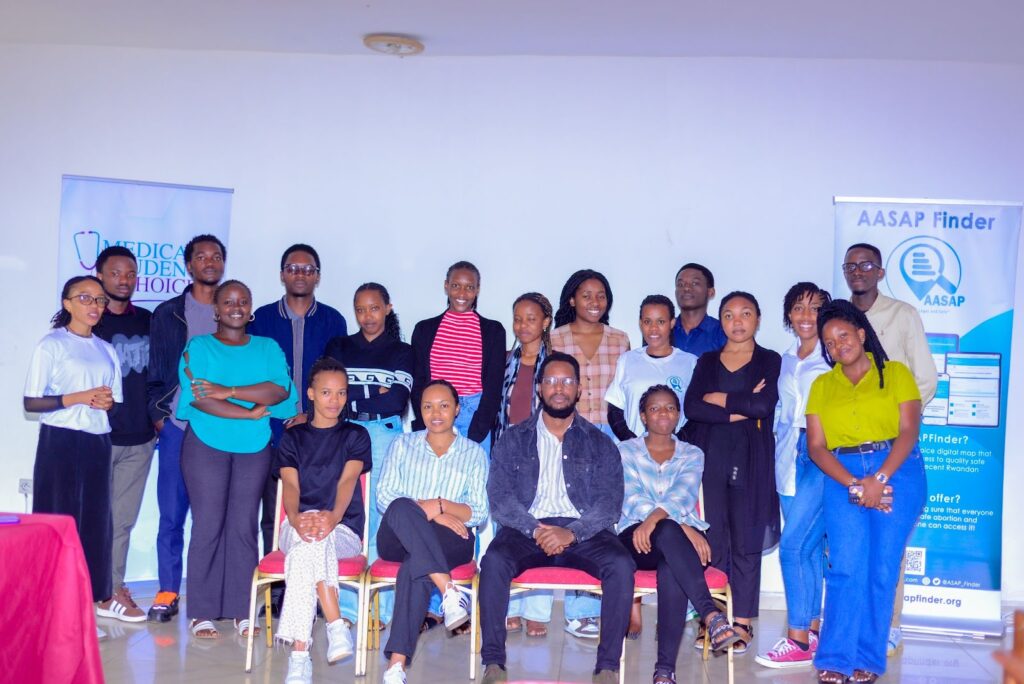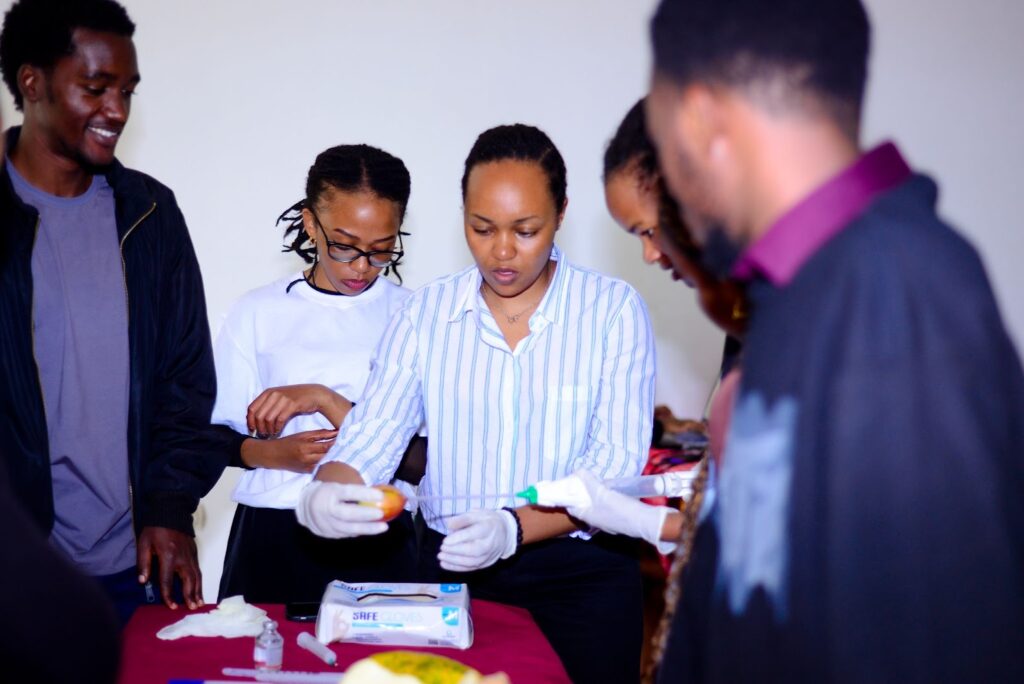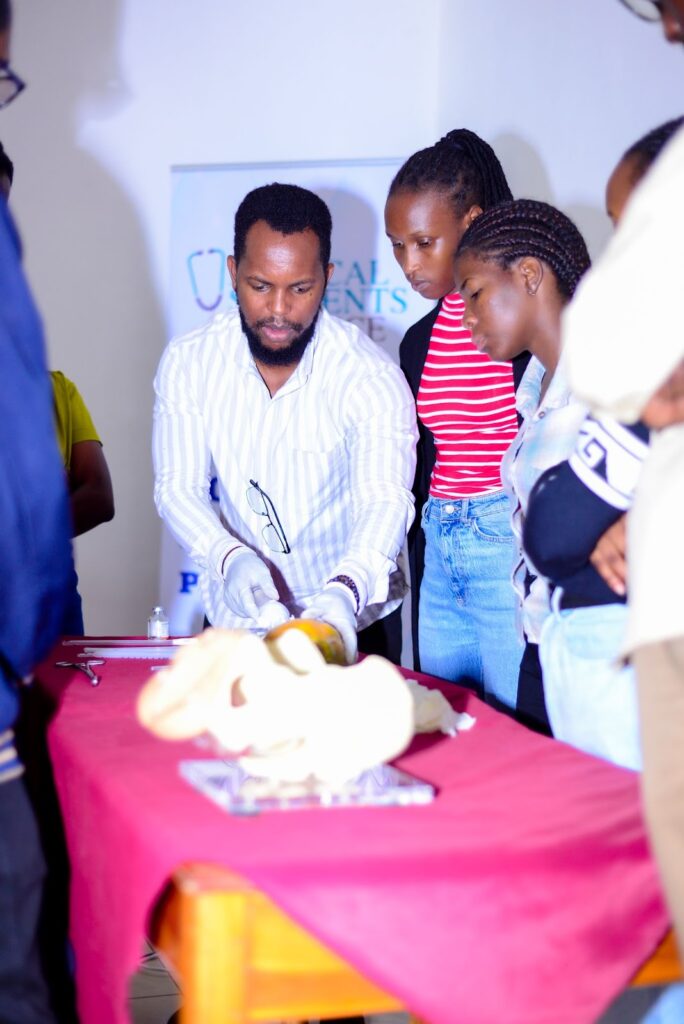Across Rwanda, a significant disconnect remains between the medical curriculum and the practical realities young doctors face in clinical settings. While reproductive health is an essential component of patient care, key procedures such as Manual Vacuum Aspiration (MVA) and Intrauterine Device (IUD) insertion remain underrepresented in undergraduate training. As a result, many medical students are left to seek out these essential skills independently after graduation.
To address this gap, Medical Doctors for Choice (MDFC), in collaboration with the MSFC Huye Chapter, organized a hands-on clinical workshop focused on safe abortion care and contraception. The workshop specifically targeted medical students in PCL1, PCL2, and DOC1, aiming to equip them with the practical knowledge and skills they will need to deliver compassionate, rights-based reproductive healthcare.

Workshop Goals and Focus
The primary aim of the workshop was to strengthen the clinical competencies and confidence of future healthcare providers in delivering safe and respectful abortion and contraceptive services, grounded in evidence-based medical practice. The session was designed to introduce students to the clinical steps involved in both MVA and IUD insertion, offer hands-on practice using anatomical models, and foster greater self-assurance in navigating reproductive health care delivery.
Workshop Summary
The day began with a theoretical session covering the fundamentals of safe abortion care in Rwanda. This included a detailed explanation of the legal eligibility criteria for accessing abortion services, the designated health facilities offering these services, and the importance of distinguishing between safe and unsafe abortion practices. This session quickly became one of the most interactive parts of the day, as many students expressed surprise at the clarity of the legal framework and admitted to holding common misconceptions about abortion in Rwanda. For students who have not yet entered clinical practice, this discussion was especially valuable in preparing them for what they may encounter during hospital placements.
The day began with a theoretical session covering the fundamentals of safe abortion care in Rwanda. This included a detailed explanation of the legal eligibility criteria for accessing abortion services, the designated health facilities offering these services, and the importance of distinguishing between safe and unsafe abortion practices. This session quickly became one of the most interactive parts of the day, as many students expressed surprise at the clarity of the legal framework and admitted to holding common misconceptions about abortion in Rwanda. For students who have not yet entered clinical practice, this discussion was especially valuable in preparing them for what they may encounter during hospital placements.
The workshop then transitioned into a brief but comprehensive overview of contraceptive options. Students were introduced to both modern and natural methods and had the opportunity to view and handle the various devices and materials used. This exposure gave participants a better understanding of the mechanisms, effectiveness, and suitability of each method in different clinical scenarios.
The highlight of the workshop was the hands-on practical session. Using anatomical simulators, students practiced the procedural steps of MVA and learned how to safely insert and remove an IUD. The session was highly interactive, with participants enthusiastically engaging in the exercises, asking questions, and receiving real-time feedback from facilitators. Many participants noted that this was their first time seeing or handling the tools involved, making the experience both educational and empowering.


